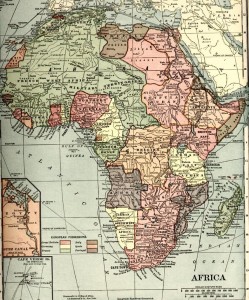Reuters | Fri Mar 20, 2009
March 20 (Reuters) -- A move by Madagascar's army-backed leader to nix a huge South Korean farming deal has exposed the risks of such ventures in Africa.
South Korean firm Daewoo Logistics had planned to lease a million hectares of Madagascar -- equivalent to the size of Qatar -- to grow food, reducing the Asian country's dependence on U.S. or South American imports.
Following are some of the agricultural deals involving foreign companies or governments elsewhere in Africa:
- The China Development Bank has granted loans worth several hundred million dollars to agricultural processing firms, mostly in East Africa. Governor Chen Yuan told African finance ministers in August the bank planned further investments and urged Africans to grow cereals as well as cash crops.
- Beijing has granted Angola a $1 billion agriculture loan, and is thinking about lending more to rebuild the sector after decades of war, Angolan state media said this month.
- In February, Chinese President Hu Jintao went on a four-nation African tour to cement ties beyond the oil and mining sectors. In Senegal, he signed a deal to buy 10,000 tonnes of groundnut oil, government media reported.
- Saudi Arabia's Hail Agricultural Development Co 6030.SE said in February it would develop 9,200 hectares of land in Sudan to grow food in a deal that could be worth $45 million. Riyadh would pay for 60 percent of the cost of the project, Saudi's first such move into the continent, the company said.
- Investor Philippe Heilberg's New York-based firm Jarch Capital said in January it was involved in a deal to lease approximately 400,000 hectares in Mayom county, southern Sudan. South Sudan's semi-autonomous government said it was looking into the deal, involving a senior local army commander.
- British energy firm CAMS Group said last year it had bought 45,000 hectares in Tanzania to produce 240 million litres of ethanol a year from sweet sorghum.
- Swedish firm Sekab, one of Europe's biggest biofuels producers, plans to establish several plantations in Tanzania in the next 10-15 years, and is negotiating with Mozambique over 100,000 hectares.
- Germany's Flora EcoPower is investing $77 million in Ethiopia's Oromia state as part of a purchase of over 13,000 hectares for biofuel production.
- India has invested nearly $4 billion in Ethiopia, including in agriculture, flower growing and sugar estates. The country's Tendaho Sugar Enterprise is being built using a $640 million loan from a state-owned Indian bank.
- Private equity fund Agri-Vie is raising up to $100 million to invest in agricultural projects in South Africa, Kenya, Tanzania, Uganda, Ghana and Nigeria. Agri-Vie's backers include South Africa's Development Bank of Southern Africa and Industrial Development Corp, and private entities such as the W.K. Kellogg Foundation, started in 1930 by the breakfast cereal pioneer.
- Abu Dhabi announced plans in July to develop over 28,000 hectares in Sudan to grow alfalfa, used in animal feed, and probably corn, beans and potatoes.
- The United Arab Emirates has farms in several Sudanese provinces, including a 17,000 hectare farm for wheat and corn
- U.S.-based Dole Food Co. and Chiquita Brands International are talking with Angola to help rebuild the once prosperous banana industry in Vale do Cavaco. Brazilian building giant Odebrecht has also announced plans to invest in Angola's sugar and ethanol sector.
- Britain's Sun Biofuels plans to grow about 5,500 hectares of jatropha in Tanzania. The company also grows jatropha in Ethiopia and has similar projects in Mozambique.














